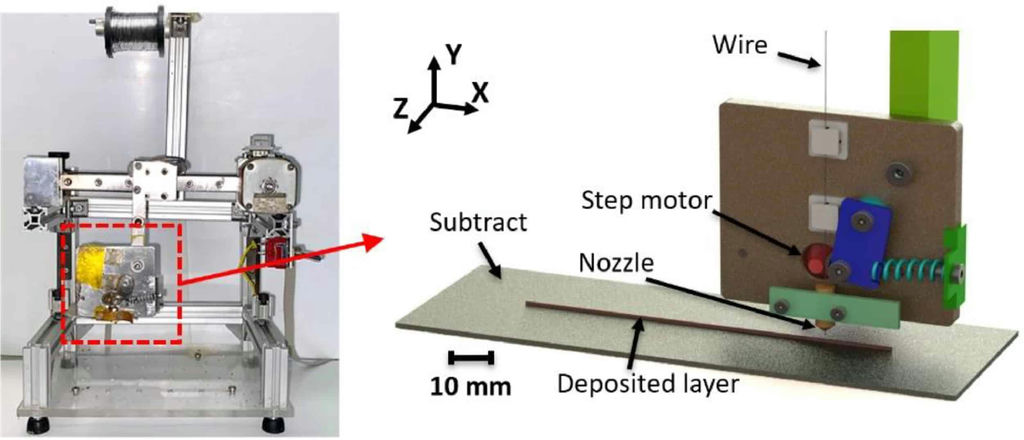In a recent study published in the journal Additive Manufacturing Letters researchers form NOVA School of Science and Technology, Portugal developed a Micro WAAM method for smaller metal parts
Highlights of the study on Micro WAAM
- A novel variant of Micro WAAM is developed.
- Increased accuracy, while maintaining high depositions rates.
- This can overcome some limitations of powder-bed fusion additive manufacturing processes.
Abstract
In this paper, researchers investigate the wire and arc additive manufacturing process scale limitations utilizing a wire diameter of 250 m and a stickout of roughly 2 mm. This WAAM variation, intends to compete with laser powder bed fusion technology by allowing for the manufacture of smaller components at substantially greater deposition rates. The primary challenges associated with descaling the process are examined, and an acceptable parameter window for fabricating thin walls is offered. Several depositions were successfully completed in ASTMA 228 utilizing a wire feed speed of 75–90 mm/s, a travel speed of 7–10 mm/s, a current intensity of 16 A RMS, and a power of 35 W RMS.
About NOVA School of Science and Technology
The NOVA School of Science and Technology (FCT NOVA) is one of the three largest and most prestigious schools of Engineering and Sciences in Portugal. It is located 15 minutes away from Lisbon, is renowned for its excellence in research, for the quality of its courses and for the large employability of its graduates (graduates, masters, doctors).
FCT NOVA, with about 8000 students, it has one of the best university campuses and is distinguished by a culture of excellent teacher-student relationship and an intense academic life with many different cultural and sport activities.
All courses are accredited by the A3ES (Agency for Assessment and Accreditation of Higher Education) and all Engineering courses are recognized by the Order of Engineers, FEANI (Federation of Professional Engineers that unites national engineering associations from 33 European Higher Education Area (EHEA) countries) and EUR-ACE (European Accredited Engineer).
FCT NOVA is structured in 14 Departments and 15 Research Centers, offering 102 study cycles (18 Bachelor’s, 11 Integrated Master’s (no applications available for the academic year 2021/2022), 41 Master’s and 32 PhDs).
Subscribe to AM Chronicle Newsletter to stay connected: https://bit.ly/3fBZ1mP
Follow us on LinkedIn: https://bit.ly/3IjhrFq
Visit for more interesting content on additive manufacturing: https://amchronicle.com/


